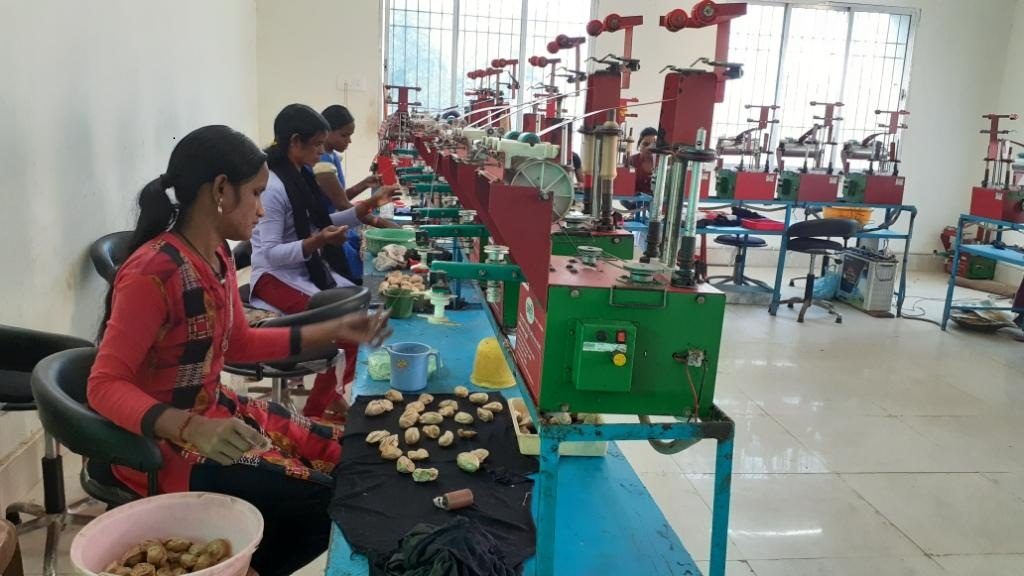Joda: Keonjhar is famous for rich minerals, and its tussar sarees made by tribal weavers of Bhagamunda under Harichandanpur block are popular even outside the state. However, the silk industry here has been in a limbo with weavers living in miserable condition under heavy loads of debts.
The state government has failed to come to the rescue of the debt-hit weavers. Though silk saree weaving is in doldrums now, the development of this sector has reportedly saved the area from going into the trap of Maoism.
According to reports, in 1978 the government wanted to make tribal weavers self-sufficient by setting up Tussar Cooperative Society at Bhgamunda. Weavers were initially being provided with tussar seeds. Cocoons were collected from them at fair price.
However, Maoist movement gripped this tribal pocket and it was branded as a Maoist-hit area in 2000. The government took this development seriously. In a bid to keep unemployed tribal youths from being attracted to left wing extremism, the government aimed to economically empower youths though silk farming and saree weaving.
Then society secretary Pradyumna Kumar Behera along with efforts of local youths developed the tussar handloom sector.
The textile and handicraft ministry provided Rs 4.9 crore while the state government provided Rs 3.80 crore for the development of the handloom sector. With this fund, silk farming, cocoon collection and thread yarning were started. About 200 youths from different areas got engagement in this sector.
Farmers have been producing silk cocoons from Asana, Arjun forests. Local youths started making quality yarns from cocoons. A variety of sarees, dhotis, wrappers and shawls with good designs are produced with handlooms.
The youths had honed their handloom skills after they were taken on study tours to other states under various skill development programmes.
Earlier, spinning and saree weaving work through the sociality was limited to only three months a year. The youths had to either sit idle for rest nine months or migrate outside the state in search of manual labour.
The society realised the problem and urged the state government to provide more funds for technology upgradation in this sector.
After some fund was made available, various machines were bought for the society. The result is that works in handloom and tussar sector were available throughout the year. The activities of left wing extremism started retreating in the tribal pocket.
Silk yarns produced from here are sent to Fakirpur, Kuakhia, Gopalpur in Jajapur, Athgarh Nuapatna, and even Azamgarh in Uttar Pradeh, Bhagalpur in Bihar, New Delhi and Banares.
According to society secretary Pradyumna Kumar Mohaptra, silk yarns are even exported to South Africa. Woman yarn maker Kuni Dehuri, a resident of Karadapal, was awarded Rs 1 lakh by the central government.
The society secretary and Kuni Dehuri were awarded with financial incentives by International Manufacturers Association at Mumbai.
Significantly, the silk industry has attracted researchers from France, Italy and Canada in the past. They were all praise for the kind of handloom and silk saree weaving activities.
Secretaries and directors of the handloom departments from Tamil Nadu and Madhya Pradesh had visited this tussar hub in the past and appreciated the activities in Bhagamunda.
Tussar experts of silk boards from across the country and abroad used to visit for research here. Sadly, the silk sector is still left in sick condition with various problems griping the society.
Women yarn workers have no hostel facilities here while they hardly get two square meals a day, they alleged.
They demanded that both the state and central governments should address the problems of the Bhagamunda tussar society for its fast revival.
